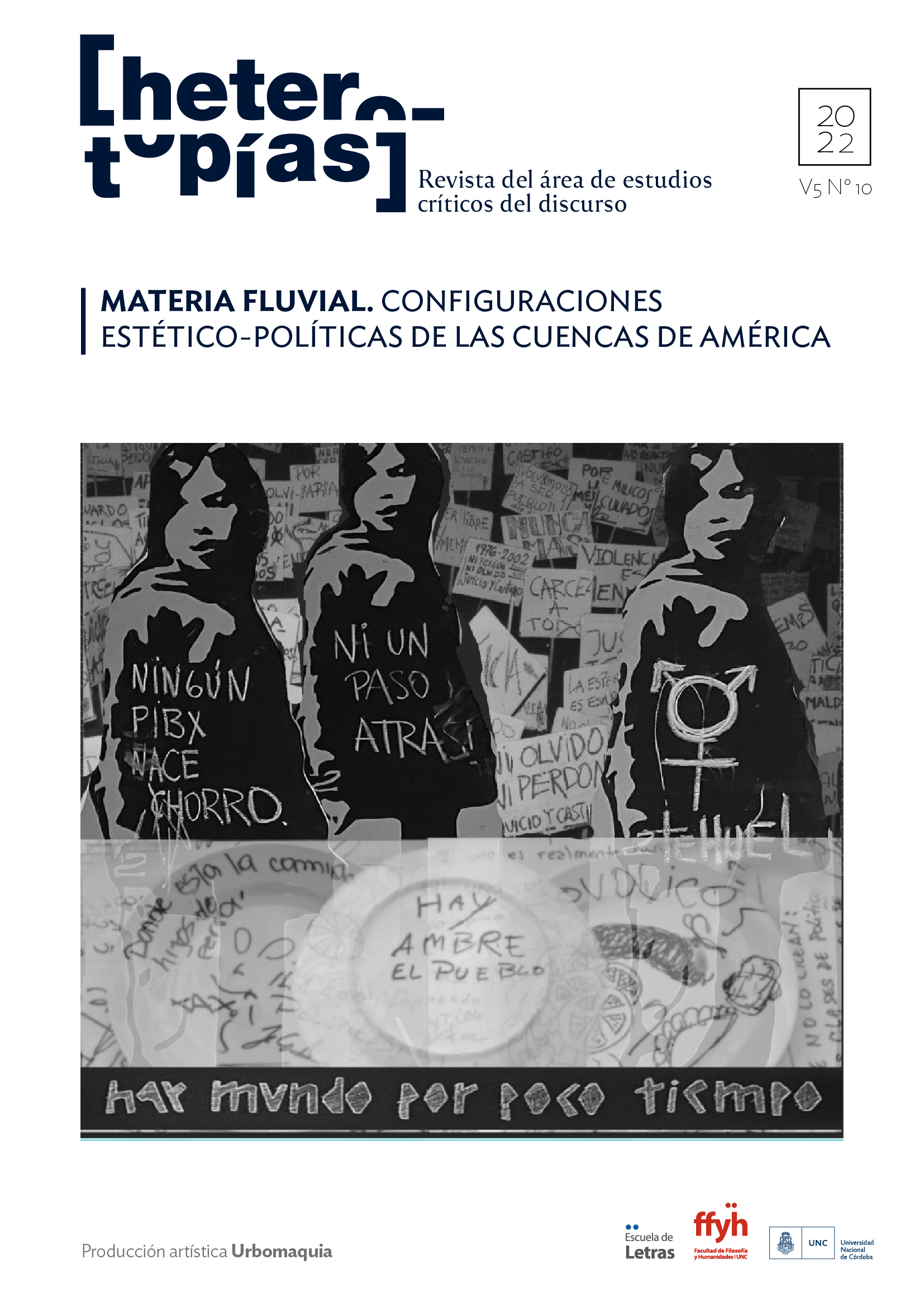Wetland burns. Fluvial drifts in the Carnevale archive
Main Article Content
Abstract
This paper explores the Graciela Carnevale archive in order to highlight the territorial practices of sensitive perception that her producer has been carrying out for more than a decade. We face a personal archive, and at the same time collective, that follows the vital pulse of fifty-five years of artistic work with its interruptions, silences and destructions. Since the end of the 20th century and the beginning of the 21st, the chronological order has been noticeably altered by the interceptions and redefinitions caused by the successive exhumations of the itinerary of the sixties. Affected by the evil of the archive, our exploration suffered multiple deviations and was subjected to a logic and a time alien to the protocols of traditional archival research. In a space where autobiography and archive are confused, we were deeply impacted by forms of life that assume the world of things as a vibrating bodies. How to transfer this experience? How to archive a work that is constituted as a series of events in the manner of a performance embodied on earth? What kind of relationship can we establish between the “wetland” section and the consolidated area of the 1960s archive? How to order a fund that is constituted from a series of assemblages in an interconnected network of humans, non-humans and machines? Faced with the challenge presented by a living archive, we propose to figure Graciela Carnevale as an artist-as-archivist (Foster). Her archive is configured as a hybrid that crosses traditional archiving technologies and unconventional forms. Without the requirements of historical reconstruction and without the premises of order and principle, typical of the modern archival ratio that would reject any anarchic existence of documentary collections, it is necessary to think Carnevale’s Archive from the disruptive force of the event that critically interferes in the reality.
Downloads
Article Details

This work is licensed under a Creative Commons Attribution-NonCommercial-ShareAlike 4.0 International License.
Those authors who have publications with this journal, accept the following terms: Those authors who have publications with this journal, accept the following terms:
a. The authors will keep their copyright and guarantee to the journal the right of first publication of their work, which will be simultaneously subject to the Creative Commons Attribution - Non-Commercial - Share Alike (by-nc-sa) Attribution License; no commercial use of the original work or any derivative works is allowed, the distribution of which must be done with a license equal to the one that regulates the original work.
b. Authors may adopt other non-exclusive license agreements for the distribution of the published version of the work (e.g., deposit it in an institutional telematic archive or publish it in a monographic volume) provided that the initial publication in this journal is indicated.
c. Authors are allowed and recommended to disseminate their work through the Internet (e.g. in institutional telematic archives or on their website) before and during the submission process, which may lead to interesting exchanges and increase the number of citations of the published work. (See The effect of open access).
References
Andermann, J. (2018). Tierras en trance. Arte y naturaleza después del paisaje. Santiago de Chile, Chile: Metales pesados.
Bennett, J. (2022). Materia vibrante. Una ecología política de las cosas. Buenos Aires, Argentina: Caja Negra.
Berg, P. (2015). The Biosphere and the Bioregion. Essential Writings of Peter Berg. Londres, Inglaterra: Routledge.
Carnevale, G. (s/r). “Gramáticas y metodologías de archivo”, mimeo.
Carnevale, G., Longoni, A., Davis, F. y Wandzick, A. (2008). Inventario. 1965-1975. Archivo Graciela Carnevale, Catálogo de la exposición. Rosario, Argentina: CCPE/AECID.
Carnevale, G., Expósito, M., Mesquita, A. y Vindel, J. (2015). Desinventario. Esquirlas de Tucumán Arde en el Archivo de Graciela Carnevale. Santiago de Chile, Chile: Ocho libros.
Carnevale, G., Holmes, B. y Meitin, A. (2020). La tierra NO resistirá. Buenos Aires, Argentina: Casa Río / Humedales sin fronteras.
Derrida, J. (1996). Mal de Archivo. Una impresión freudiana. Madrid, España: Trotta.
Derrida, J. (1995). Espectros de Marx. El estado de la deuda, el trabajo del duelo y la nueva internacional. Madrid, España: Trotta.
Foster, H. (2017). Un impulso (an)archivístico. En Bernabé, M. (Comp.), En el borde del mundo. Vanguardias de archivo en América Latina (pp. 163-196). Rosario, Argentina: HyA ediciones, 2017.
Holmes, B. (2020). “Máquinas empáticas”. En Carnevale, G., Holmes, B. y Meitin, A. La tierra NO resistirá (pp. 205-210). Buenos Aires, Argentina: Casa Río / Humedales sin fronteras.
Holmes, B. (s/r). Continental Drift. The other side of Neoliberal Globalization. Recuperado de https://brianholmes.wordpress.com/
Longoni, A. (2015). El mito de Tucumán Arde. En Carnevale, G., Expósito, M., Mesquita, A. y Vindel, J. (2015). Desinventario. Esquirlas de Tucumán Arde en el Archivo de Graciela Carnevale (pp. 251-263). Santiago de Chile, Chile: Ocho libros.
Rolnik, S. (2006). Lygia llamando. En Brumaria, (7), 203-216.
Serres, M. (1991). El contrato natural. Valencia, España: Pretextos.
